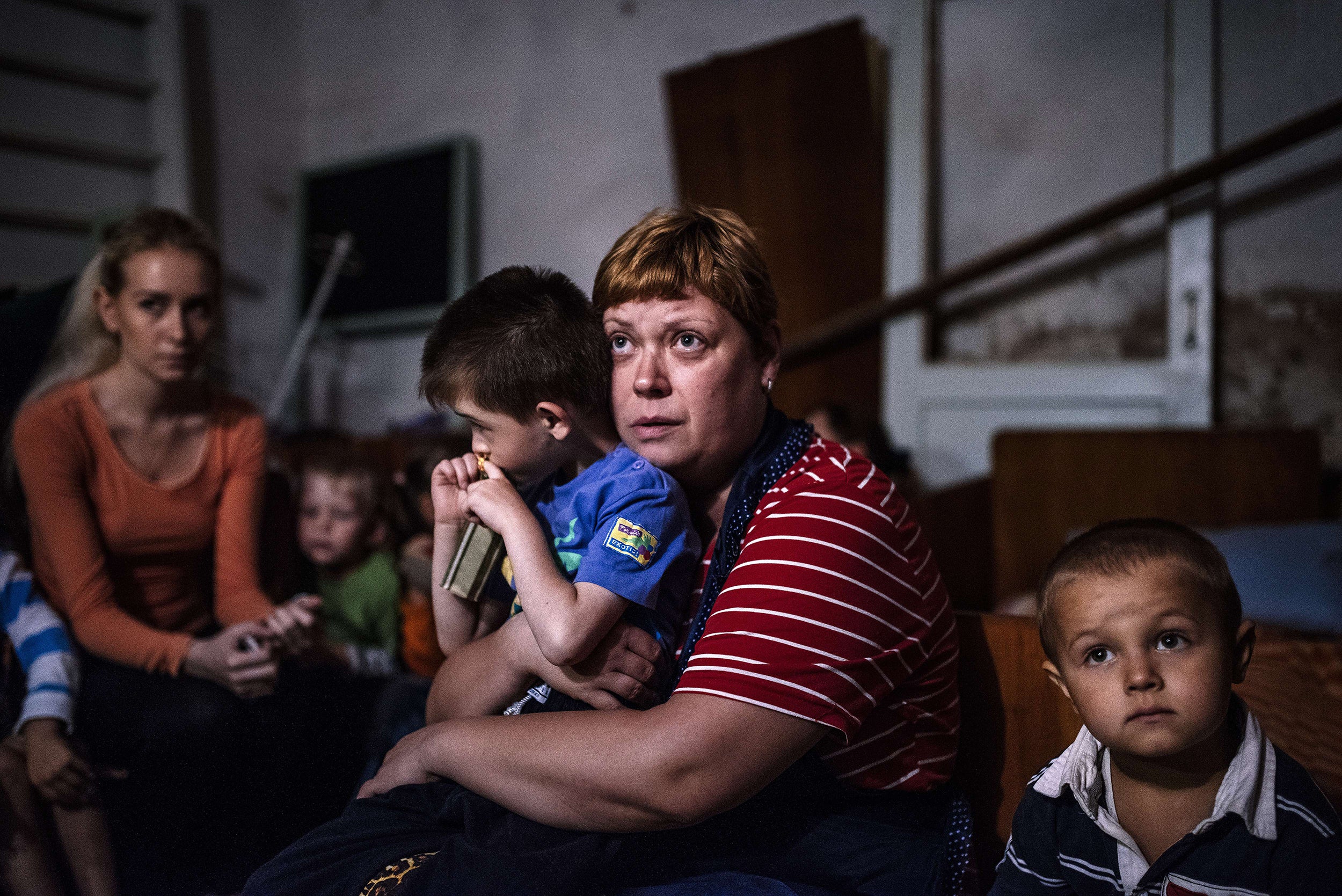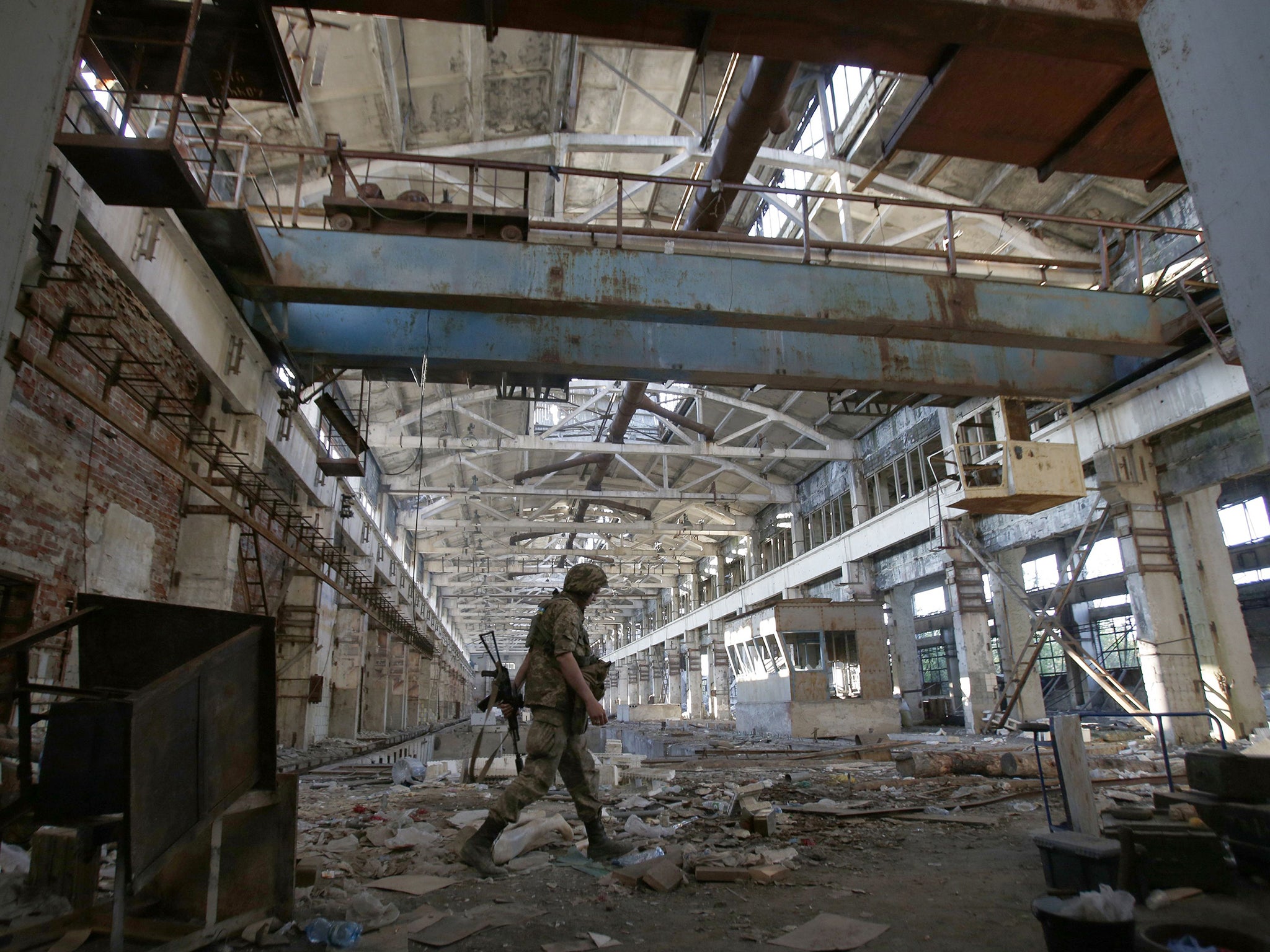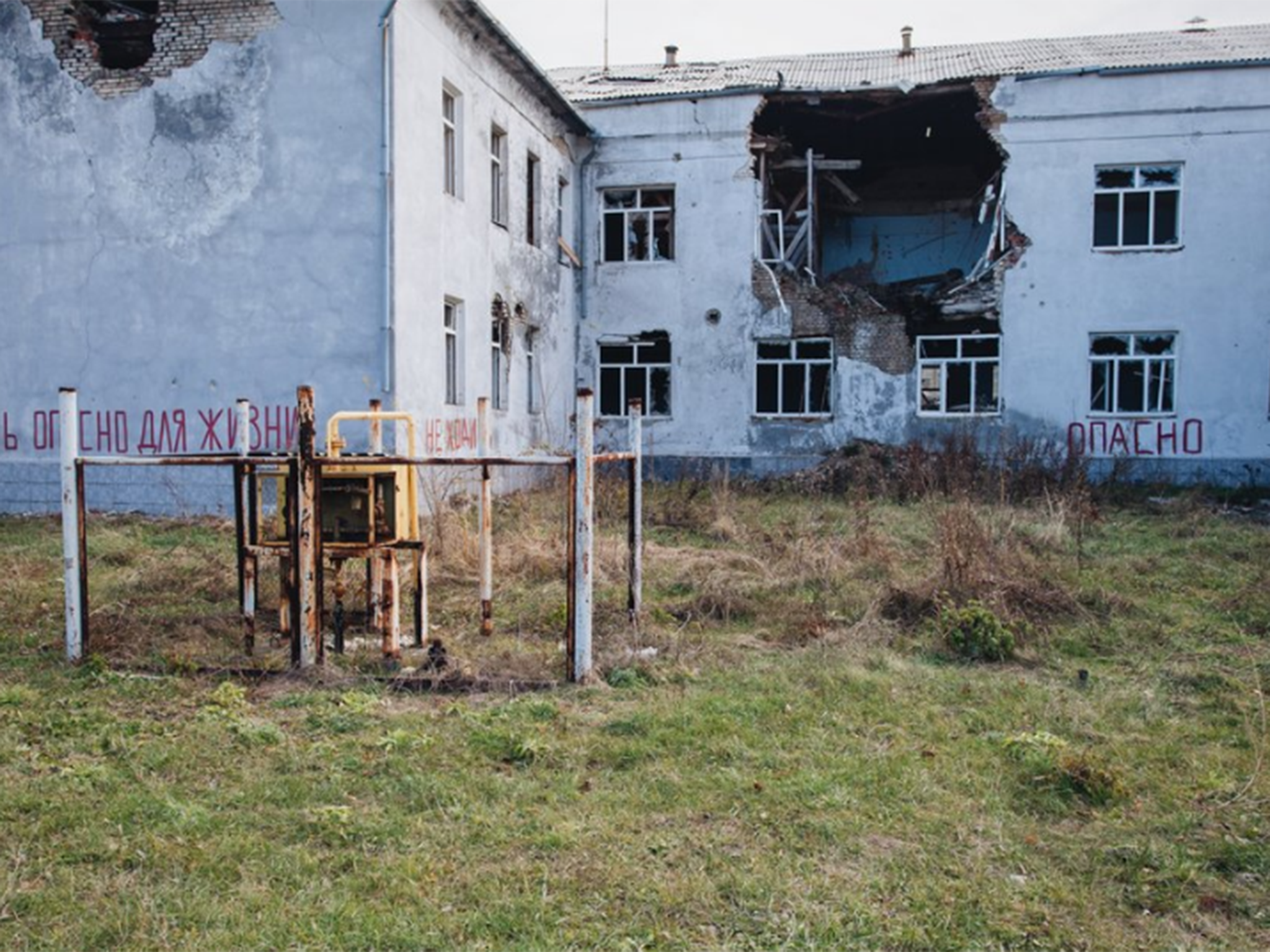Three years of conflict takes its psychological toll on the people of Ukraine
Those who have suffered the traumas of war are suffering from extreme stress and a sense of utter helplessness – but little can be done to reach them

Your support helps us to tell the story
From reproductive rights to climate change to Big Tech, The Independent is on the ground when the story is developing. Whether it's investigating the financials of Elon Musk's pro-Trump PAC or producing our latest documentary, 'The A Word', which shines a light on the American women fighting for reproductive rights, we know how important it is to parse out the facts from the messaging.
At such a critical moment in US history, we need reporters on the ground. Your donation allows us to keep sending journalists to speak to both sides of the story.
The Independent is trusted by Americans across the entire political spectrum. And unlike many other quality news outlets, we choose not to lock Americans out of our reporting and analysis with paywalls. We believe quality journalism should be available to everyone, paid for by those who can afford it.
Your support makes all the difference.The village’s last remaining civilians shuffle into an abandoned nursery, now commandeered by aid workers as a weekly, frontline clinic. Colourful cars and cartoon animals beam from cheerful wallpaper; rows of tiny, empty beds – once used for nap time before war broke out – line the adjacent room of this immaculate, lovingly-decorated nursery.
Once a house of children, now a waiting room for the ailing and the aged.
Chief psychologist, Elena Pylaeva, is on a mission. These patients came for check-ups for a range of complaints – diabetes, heart disease, hypertension – but she knows there lurks at least one more condition: invisible, immobilising, ingrained and ignored.
Almost three years of armed conflict have wrought a profound psychological toll upon the civilian population of eastern Ukraine yet stigma surrounding mental health issues, coupled with the collapse of medical infrastructure are thwarting treatment and recovery.
Elena petitions the group of 20 locals – mostly older women dressed in floral headscarves, woollen cardigans and shin-length skirts – to talk with her so she can assess their psychological health. This is a war in which the oldest have proved particularly vulnerable, refusing to leave home when others have fled.
Protracted fighting between government forces and Russian-backed separatists has claimed around 10,000 lives and repeatedly exposed civilians to the horrors of combat while state support has crumbled. Many are deeply traumatised and endure extreme stress, heightening a sense of utter helplessness and overwhelming their capacity to cope. And yet they resist relief.
“I’m frightened all the time,” says 80-year-old Nadiya Davidenko. “I barely sleep anymore, whether there’s fighting or not.” She remembers when Pavlopil was a sleepy, peaceful community – not this ghost village wrecked by bombing, pinned between minefields and emptied of its inhabitants.
“But I’ve never seen a psychologist before and I’m not going to start now,” she adds indignantly, tightening her headscarf. “Better to go to church instead and speak with the priest.”
Her friend whispers to me: “The priest fled months ago.”
There is great resistance to psychotherapy in Ukraine, where a macho, patriarchal culture dominates and mechanisms for licencing effective counsellors are weak. The problem is compounded by a shame fostered by the Soviet era when repressive authorities rendered psychiatry a tool for punishment by imprisoning political dissidents in asylums, thus demonising mental health issues further.

“At the start, the patients say, ‘No, we don’t want help’. There’s no trust, they don’t understand the benefits of therapy,” says Elena, a psychologist with the international medical aid charity, Médecins sans Frontières (MSF), which runs this weekly clinic. “These civilians suffer from depression, isolation, nervous stress and fear. The young ones have left, the elderly remain with no relatives to support them. Many lived their lives through their children and expected to care for their grandchildren on retirement. Now that is completely overturned.”
Tanya Sabutskaya, 65, is living proof. She grew up in Pavlopil and fondly remembers the excitement around public holidays when children played in the streets and Second W veterans, adorned with Red Army medals, gathered at the village’s monument to the fallen.
“My grandchildren can’t visit me for long because of the shelling,” says Tanya, as she waits for the doctor to check her diabetes. “This war is a thief and has robbed me of a family.”
Tatiana Ticona, an MSF field coordinator, explains how the unpredictable rhythm of the east’s cycles of violence exacerbates stress and anxiety. “The conflict is not yet frozen but can sometimes give a false image of normality. It can seem peaceful and quiet but then change very quickly.”
Lulls provide much needed respite but also prompt fearful civilians to brace themselves for further fighting. “We’re afraid of silence, that’s when something can happen,” says Avdotya Buragina, 75, who waits for a blood pressure test while chatting with other patients about the next aid delivery and the soaring cost of food, medicine and utilities. “Here, we are not living. We are merely surviving.”
The previous day, fifty miles further north along the line, nine teachers gathered at a primary school in Krasnohorivka, where violence is now entrenched in everyday life. This small, government-held town, close to separatist-controlled Donetsk, continues to endure mortar attacks, exchanges of heavy gunfire and haphazard shelling that strike apartment blocks.
Beneath the stark glare of strip lights in a rudimentary classroom, psychologist Sergey Scherbak pulled out a set of projection slides and began training the teachers on how to support traumatised pupils and to manage personal burnout and fear.
The school’s deputy headmistress, Olga Mashutina, says approximately half of the school’s 70 students, aged between 6 and 14, show signs of war-related stress and need support to overcome psychological and behavioural disorders.
By day, there are panic attacks and moments of rage; some are withdrawn, distrustful, even mute. By night, there is insomnia, bed-wetting and nightmares. The pattern is repeated throughout the war-wracked Donetsk region, where around 8,000 students attend dozens of schools near the front line.
The war has exerted a devastating impact on children, inflicting repeated layers of shock and emotional injury that can develop into post-traumatic stress disorder (PTSD), months or even years later. This conflict is the first time they have experienced the terror of artillery barrages, the grief of losing relatives, the anguish of screaming parents, the turmoil of displacement and the lurking threat of landmines.
“Around 80 per cent may be able to heal themselves,” Sergey, a psychologist of ten years, now a member of MSF’s regional taskforce of doctors, told The Independent. “But around 20 per cent of them will be severely affected and the trauma will get worse. They will never forget what they have seen and, for many, the fighting is far from over.”
During the session, the teachers were taught breathing exercises to alleviate stress and advised on the importance of sleep for recovery. This triggered some dispute.
“How can we sleep when the shooting keeps us awake?” interjected one teacher. “But the shooting has stopped now, hasn’t it?” Sergey calmly replied (referring to a recent truce that has since collapsed). “Yeah but even when it’s silent, we’re just waiting for the shooting to start over again.”
According to Sergey: “Many adults and children are still forced to shelter in basements from the bombing, which has a big impact on their mental health.
“This is a key reason for training teachers: if they can be calm, the children will be calm. Next, we will train parents. This is all about improving and stabilising the circle around the town’s children.”
At a village school in Vinogradne, near the Azov Sea frontline, child psychologist Maria Yakovleva says even the sound of a bursting balloon can cause acute reactions of shock and fear.

One classroom poster is titled: “How to behave when the school is shelled”; another illustration shows a boy and girl backing away from an unexploded mortar, captioned: “Call 101 if you see a dangerous or suspicious object”.
More than 235,000 Ukrainian children have been internally displaced from their homes by fighting since 2014, according to government figures. Unicef and its partners offer psychosocial support to around 224,000 affected youngsters and carers.
But aid workers warn that the true psychological devastation of this forgotten war on Europe's fringes remains hidden.
“It is impossible to know the extent of the problem,” said Anneli Droste, MSF’s mental health manager in Mariupol. The same event can traumatise some while leaving others relatively unscathed. “It is very hard to get concrete data.”
A hotline providing psychological and legal assistance to Ukrainian children and parents has seen a huge spike in calls since 2014's outbreak of war. Before the conflict, the service – supported by Unicef and run by La Strada – was contacted by distressed children around 18,600 times in 2013 and has more than doubled to over 43,000 calls this year.
MSF operates throughout government-controlled territory in the war-wracked Donbass region but is banned from Ukraine’s breakaway territories after separatists blacklisted the aid group last year, denying thousands urgent medical care.
Mark Walsh, who heads MSF’s mission in Ukraine, said the organisation continues to lobby the de-facto authorities in rebel-held Donetsk and Luhansk – and “whoever they will listen to” – to regain access.
“All the patients that we were helping in those regions are still without care. As far as we know, nobody has stepped in,” Mr Walsh told The Independent. “The needs are still the same as when we left – perhaps even greater.”
Join our commenting forum
Join thought-provoking conversations, follow other Independent readers and see their replies
Comments